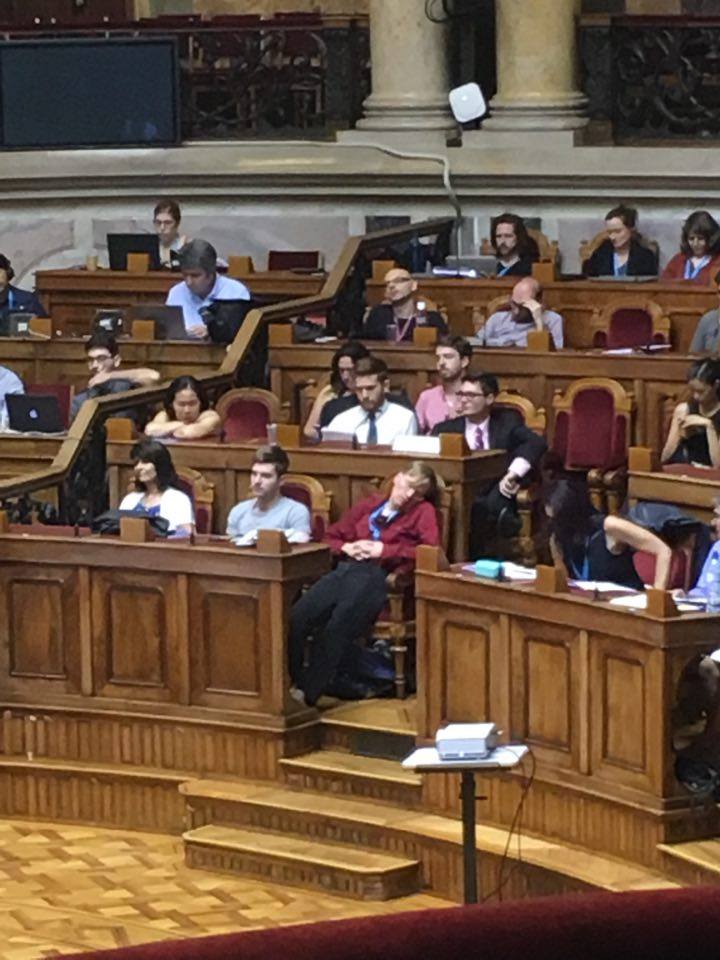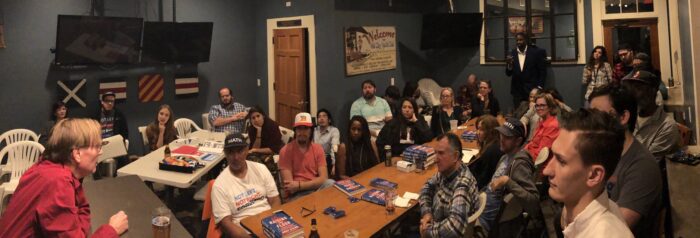I’m teach a six-week masters seminar called “the Ethics of Universal Basic Income” (UBI) at the University of Freiburg, over six Fridays, January 7 – February 11, 2022. If you’d like to follow along, I’ll post the lectures on YouTube by the next day. Virtually students can comment here and interact with each other. And of course, the lectures will remain up, so you can follow the class later if you want.
If you’d like to do more than listen to the lectures. I’ve attached the latest version of the syllabus with links to most of the reading. If you have access to a university library, you can probably get most of the rest of the reading. But don’t feel like you have to do the reading when auditing the class.
Syllabus:
List of guest speakers:
If you have any questions or need to find any password-protected material, email me at Karl@widerquist.com.
Warnings:
- Although this class is called, “the ethics of UBI,” it’s at least 50% “the ethical theories of Karl Widerquist.” If that doesn’t eliminate your interest, the class is still here.
- This is a graduate class in philosophy aimed at students in the first or second year of a Masters program. So, it assumes some prior knowledge of UBI and of political philosophy. I’m hoping that I’ll lecture in a way that most people can follow without much prior knowledge. If that’s not enough, the syllabus provides more than enough reading to get you up to speed, if you have time for that.
Lecture plan
Week 1 (January 7, 2022): Unfortunately, no video was recorded that week
- Introduction
- Rawls and social contract theory
- Nozick and so-called libertarianism
Week 2 (January 14, 2022):
- Video 1: Prehistoric Myths in Modern Political Philosophy, followed by class discussion about its implications for UBI
- Video 2: Widerquist presents Van Parij’s “Real Libertarian” cased for UBI, followed by class discussion
Week 3 (January 21, 2022):
- The Prehistory of Private Property: three critiques of inequality
- Video 3: The Ethics of UBI video 3: The Prehistory of Private Property, with class discussion of each part: Part 1: the inequality hypothesis, Part 2: the market freedom hypothesis, Part 3: the natural property hypothesis.
Week 4 (January 28, 2022):
- Video 4: Introduction to Justice as the Pursuit of Accord (JPA)
- Video 5: Freedom as the Power to Say No: the JPA theory of freedom: a theory of status freedom and an argument for UBI
Public seminar (February 2, 2022, 4-6pm CET): link to watch it live
- Video 6: Guy Standing, “A Commons-Based Argument for Basic Income,” 4pm
- Video 7: Alex Gourevitch, “the Basic Income Illusion,” 5pm
Week 5 (February 4, 2022):
- Video 8: JPA property theory: a theory of property rights and an argument for UBI
- Video 9: Philippe Van Parijs’s “Real Libertarian” argument for UBI
Public seminar (February 9, 2022, 4-6pm CET): link to watch it live
- Video 10: Louise Haagh, “Developmental Freedom and Social Order”
- Video 11: Otto Letho, “Libertarian Perspectives on Basic Income”
Week 6 (February 11, 2022):
- Video 12: Non-domination and Basic Income
- Video 13: Will Basic Income do justice to women?
- Video 14: Anca Gheaus, “Basic Income, Gender Justice and the Costs of Gender-Symmetrical Lifestyles”
Guest speakers:
Wednesday, February 2, 4-6pm: Public seminar, livestreamed, all welcome
Guy Standing, “A Commons-Based Argument for Basic Income,” 4pm (55 minutes: 15-25 minute talk, followed by discussion)
Alex Gourevitch, 5pm (55 minutes: 15-25 minute talk, followed by discussion)
Friday February 4, class visit, 3-5:30pm: live for registered students and invited guests only; the recording will be publicly available later
Regular class discussion 3-4pm
Philippe Van Parijs, 4-5pm, “Ethics: Free riding or fair share?” 55 minutes, discussion only
Wednesday, February 9, 4-6pm: Public seminar, livestreamed, all welcome
Louise Haagh, 4pm, “Developmental Freedom and Social Order” (55 minutes: 15-25 minute talk, followed by discussion)
Otto Letho, 5pm, “Libertarian Perspectives on Basic Income” (55 minutes: 15-25 minute talk, followed by discussion)
Friday February 11, class visit, 3-5:30pm: live for registered students and invited guests only; the recording will be publicly available later
Regular class discussion 3-4pm
Anca Gheaus, 4-5pm (55 minutes: 15-25 minute talk, followed by discussion), “Basic Income, Gender Justice and the Costs of Gender-Symmetrical Lifestyles”


Hey Karl!
I don’t see the link to the first lecture
Or am I blind?
Sorry, it isn’t up yet. I’ll update the page to explain that, and get the seminar recordings up as soon as I can.
My apologies. As I mentioned to the other person. The first video isn’t ready yet. I’ll do it as soon as I can, and I’ll update the page to explain that the videos aren’t ready let. Stay tuned.
I’m sorry if this is staring me in the face somewhere already, but can you please provide a link to the YouTube posting of the classes?
See above. I came here this morning wondering the same 🙂
Hello Karl, forgive me because I havent yet read any of your work, but I have some comments on freedom I would like to get your thoughts on. Here they are:
Freedom and justice are not necessarily compatible. Justice might mean the pursuit of accord, but real freedom means that some people can pursue discord.
I thought the common idea of freedom is the be free from authority and coercion and a state of freedom is one that is laissez faire with minimal rules and regulations. In such a state individuals can make free choices and make voluntary associations. People are free to compete or cooperate.
The only way to make everyone equally free would actually require taking away freedom by imposing more rules and regulations and redistributions. That actually shrinks the pie of freedom and only redistributes the smaller pie to those who have less.
I have never played a game such as monopoly in which people are free to chose their own competitive strategies and the game ended in a tie (equality). It seems to me that free competition is inherently exclusionary and unequal.
What you are advocating for is not freedom really but equality.
Should the strong be free to enslave and exploit the weak. His idea of freedom seems laughably optimistic. True freedom means people should be free to be a menace to society and create as much chaos as they like. Why shouldnt people be free to own private property?